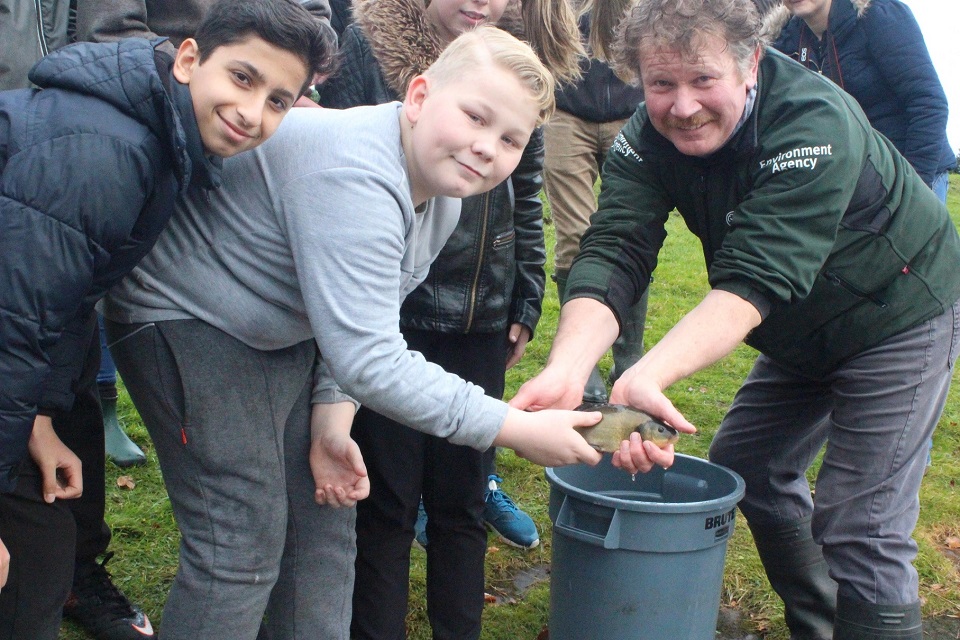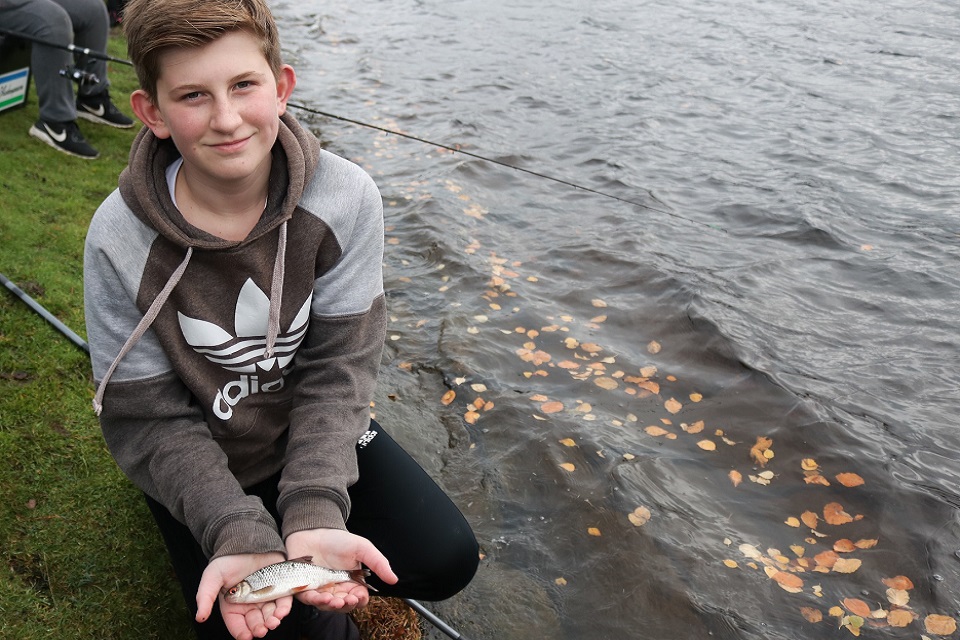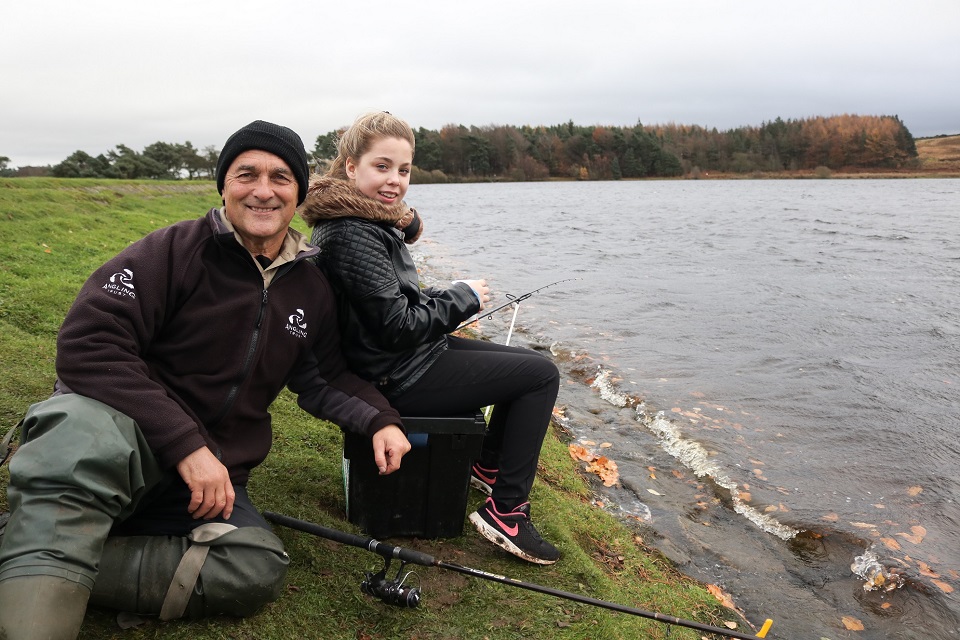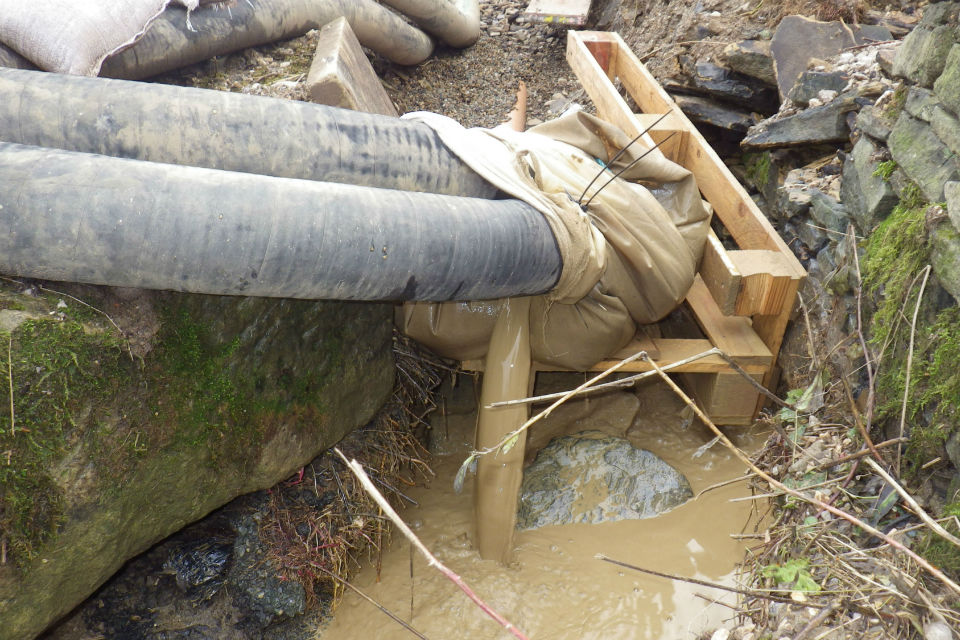Press release: Youngsters help give fishery a boost
The Environment Agency has released 1,500 fish into a recently re-established fishery this week to give stocks a pre-Christmas boost and encourage angling.
Lockwood Beck reservoir, south of Guisborough, opened earlier this year to coarse anglers and they’ve since been catching fish such as roach and perch.
Now the Environment Agency has stocked bream, tench and crucian carp to provide more variety for anglers and encourage participation at the fishery.
The fish have all been bred at the Environment Agency’s fish farm near Calverton, which is solely funded by rod licence money.

Young anglers help stocking
To mark the fish stocking on Tuesday a group of young anglers from Eastern Ravens Trust in Stockton-on-Tees received expert angling tuition from the Angling Trust and had the opportunity to see the new fish being released into the reservoir.
Eastern Ravens Trust is a registered charity based in the Community Zone, North Shore Academy, which provides open access youth activities to young people aged 10-18 in the most deprived ward in the borough alongside supporting isolated and disadvantaged children, young people and families.
The owners of the reservoir, Northumbrian Water Ltd, provided support on the day and are committed to providing the venue in the future for organised coaching events for anglers aged under 16.

Happy with the development
Phil Rippon, Fisheries Technical Specialist from the Environment Agency in the North East, said:
We are happy to help with the development of Lockwood Beck fishery, working with the Angling Trust and Northumbrian Water to encourage more participation in angling.
The reservoir is an excellent venue for future coaching events as well as providing a resource for local anglers. The fish provided by us will help to support the fish stocks and provide a more interesting variety of species.

Great news for fishing
Don Coe, Leisure Operations Manager at Northumbrian Water, added:
This is a fantastic way to get young people interested in fishing and we’re very pleased to be supporting the Angling Trust with their activity.
Also, the stocking carried out by the Environment Agency will also enhance the appeal of Lockwood Beck for anglers of all ages and experience, so this is great news for fishing in the area.
Angling is a great way for everyone to keep healthy and enjoy the natural environment. All rod licence income is used to find work to protect and improve fish stocks and fisheries.
Anyone who wants to go fishing needs to buy a rod licence. A full annual licence costs £30 (short term and some concessionary licences are also available) and are available online at https://www.gov.uk/fishing-licences/buy-a-fishing-licence
